
Faith leaders on the frontline in the fight against coronavirus
Religious leaders are helping to raise awareness about Covid-19 in fragile states and refugee camps to help people protect themselves.
20 August 2020
Religious leaders are helping to raise awareness about Covid-19 in fragile states and refugee camps to help people protect themselves.
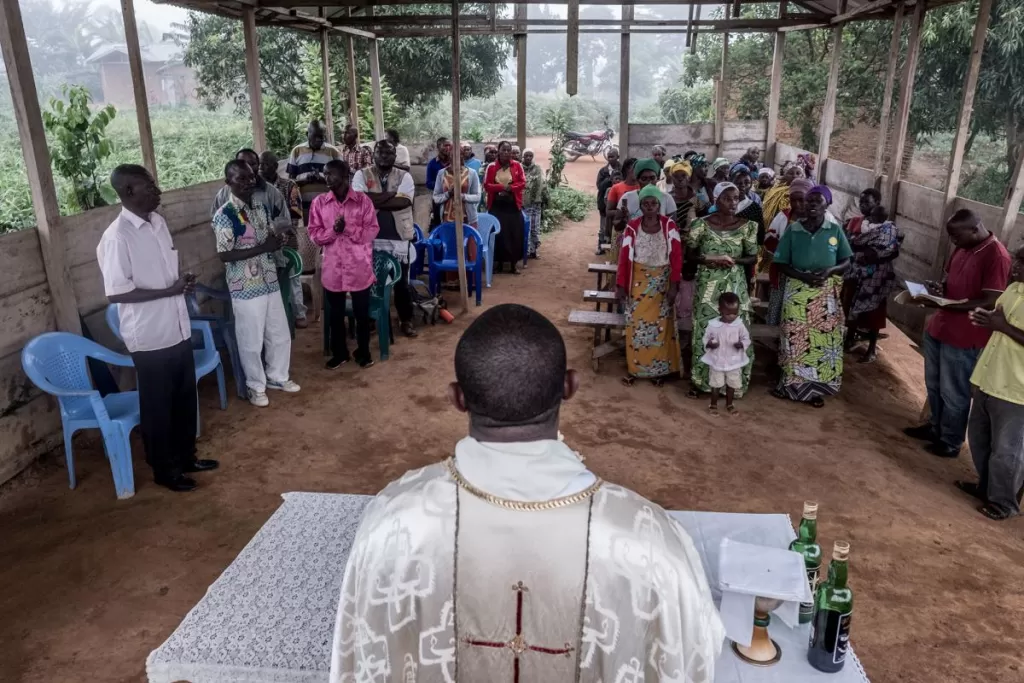
Abbe' Michel, a Catholic priest, holds a service in DR Congo before the pandemic. Image: CAFOD
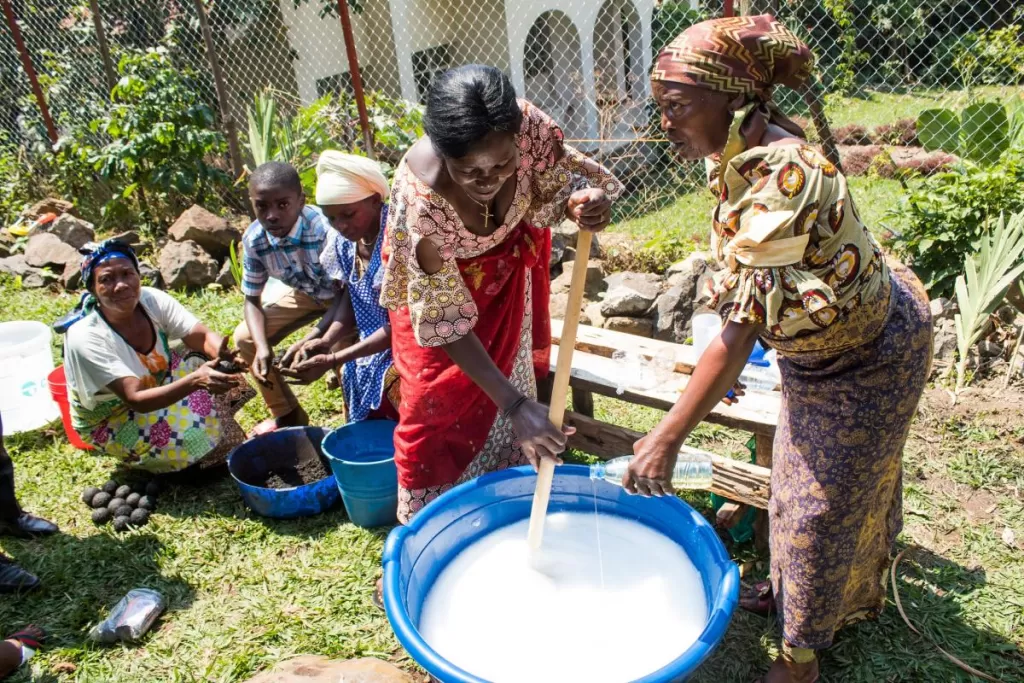
Women making soap at Olame Centre in DRC. Image: Jean Claude Wenga/CAFOD
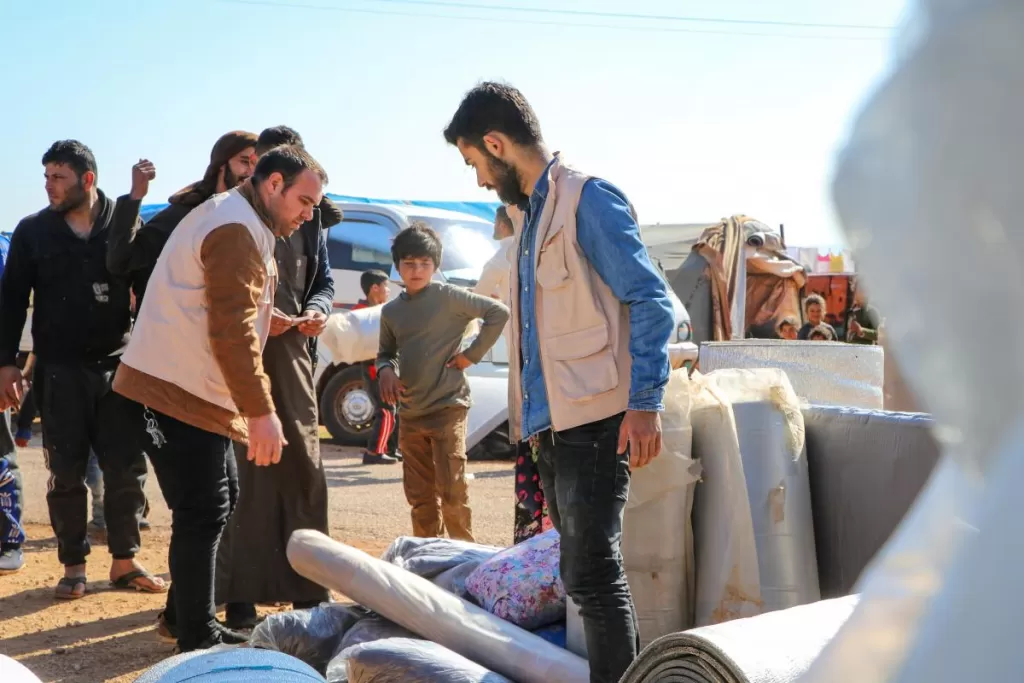
Aid workers distributing aid in Syria. Image: Jean Claude Wenga/CAFOD
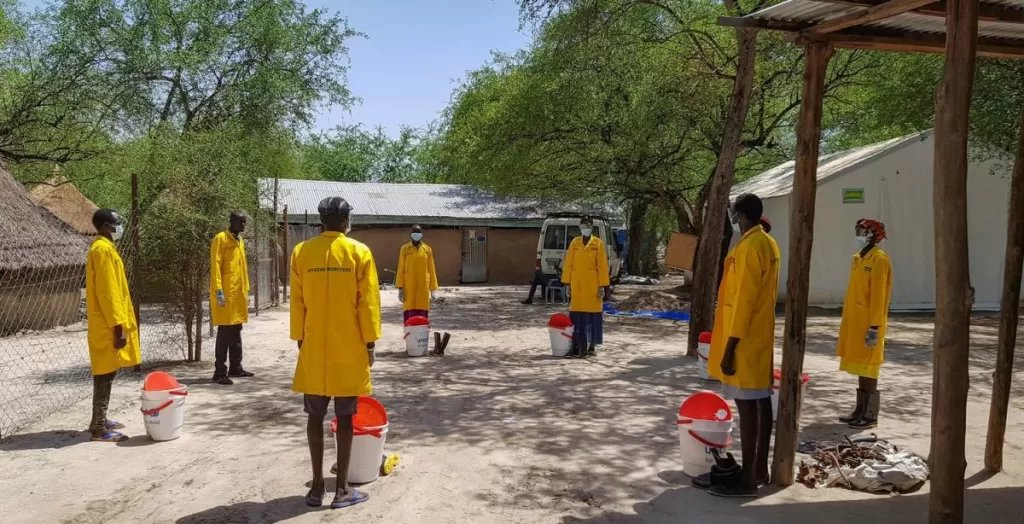
Aid workers in South Sudan learn about social distancing. Image: Dada Luke/Tearfund
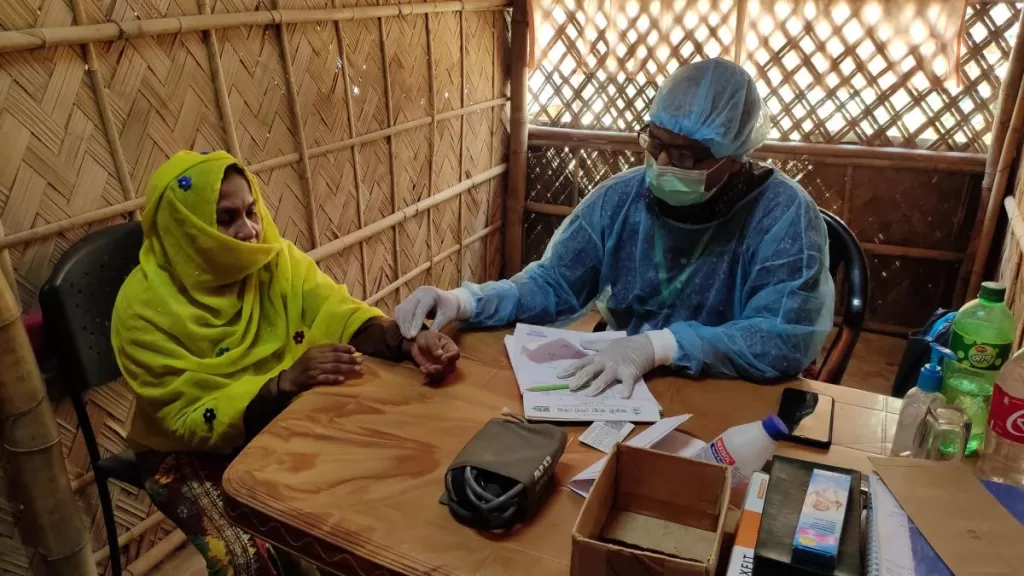
Dr Mohammad Aowfee Khan consulting with a patient while wearing protective clothing. Image: Christian Aid